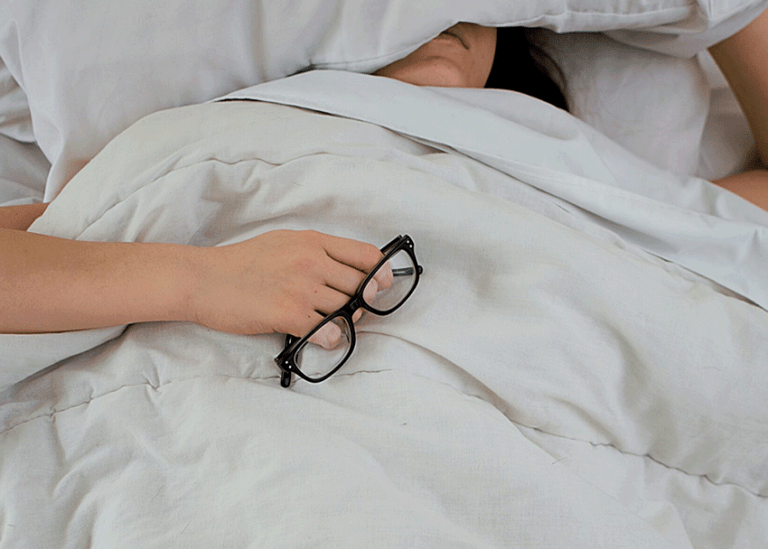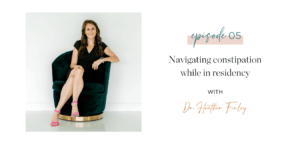As a busy professional, you likely have a lot on your plate. With deadlines to meet, meetings to attend, and emails to answer, it can be tough to carve out time for sleep. But did you know that getting enough shut-eye is crucial for maintaining a healthy gut?👀
When you don’t get enough sleep, it can wreak havoc on your digestive system (this was something I ignored for WAY too long on my own journey)!🤪
✅Studies have shown that sleep deprivation can alter the balance of bacteria in your gut, leading to a decrease in beneficial strains and an increase in harmful ones. This can lead to a host of gut issues, including inflammation, bloating, and constipation.
👉🏼In addition to disrupting your gut microbiome, lack of sleep can also increase stress hormones like cortisol, which can further exacerbate gut issues
🚨And when you’re sleep-deprived, you’re less productive, which can compound the problem🚨
So how can you ensure you’re getting enough sleep for optimal gut health?
By establishing a consistent sleep schedule to regulate your internal clock.
Aim for 7-8 hours of sleep each night
Sleep is one of the most important habits for gut health. It’s a time for your body to recover from the day and prepare itself for the next one.
Sleep helps regulate hormones, which in turn regulates digestion.
How much sleep do you need? That depends on your age, health conditions like diabetes or heart disease, stress levels–and even genetics! But as a general rule of thumb: 7-8 hours per night is ideal for most adults, but especially those who are experiencing major issues with their digestion.
Now let’s work backwards and consider habits to implement into your nightly routine to set you up for success so you can actually get those 7-8hrs of sleep.
Shut Off Screens 2hrs Before Bed
The blue light from screens can disrupt your circadian rhythm, which is the natural cycle of sleep and wakefulness. If you’re like me and you get sucked into Netflix at night, it’s important to remember that screen time should be limited to 2 hours before bedtime. This includes computers, phones, TVs and any other electronic devices with a screen (like e-readers).
The same goes for morning light: Limit your exposure as much as possible–especially if you live somewhere with high levels of pollution or smog!
Limit Caffeine and Alcohol
Limit caffeine and alcohol, which are diuretics. Diuretics cause dehydration and electrolyte imbalances, which can lead to gastrointestinal problems like bloating or constipation. Caffeine also disrupts sleep patterns, so it’s best to cut back if you’re having trouble falling asleep at night.
Try your best to avoid caffeine after 12pm to give your body time to process it all before hitting the sheets at night.
Try this: If you drink coffee before bedtime, consider switching over to decaf or substitute it for a warm ginger or peppermint tea which both contain gut-loving ingredients to help soothe gut symptoms.
Yoga for Digestion
Yoga is an all-around practice that can help cure digestive issues. Yoga helps with digestion by reducing stress, which reduces inflammation that causes digestive problems. Additionally, yoga encourages deep breathing, which stimulates the parasympathetic nervous system and allows for better digestion overall.
There are several poses in particular that are great for improving digestion because they stretch out your abdominal organs so they can work more efficiently.
Yoga also has a meditative aspect to it, and meditation is another form of relaxation that helps with gut health symptoms, especially if you have trouble sleeping at night because your mind races with thoughts about work or other responsibilities.
Lights Out Before 10pm
You might be surprised to learn that your bedtime habits can have a significant impact on your gut health.
When you’re ready for bed, your body’s internal clock is regulated by light. So if you’re spending too much time awake in the evening, it could be throwing off your circadian rhythm–and that means trouble for your gut! The best way to ensure good sleep quality is sticking with lights out at 10pm (or earlier). This ensures that when it comes time for bedtime, there’s no doubt about what needs to happen next: getting some restorative shut eye.
I know you may be thinking “wait, if I should avoid screen time 2hrs before bed, and I should have lights out by 10pm.. That means I have to get ready for bed at 8pm and that’s too early for me.”
You don’t necessarily have to have your eyes shut at 10pm. The goal with lights off at 10pm is to create an environment that promotes relaxation.
Try dimming the lights and lowering the temperature in your bedroom before bedtime. You’ll be more likely to fall asleep faster if you’re not distracted by bright lights or cold feet!
And rather than screen time, you can use those 2hrs before bed to really begin your bedtime routine.
- Start your evening skincare routine
- Try doing yoga for digestion
- Opt for a book instead of scrolling your phone
- Practice breathwork or use a meditation app to help you fall asleep.
Remember, taking care of your gut is essential for your overall health and wellbeing – and getting enough sleep is a critical piece of the puzzle. The end of the day is a great time to focus on your gut health. Start implementing some simple changes to your routine, to prioritize restful, restorative sleep each night, and watch as your gut health (and your work performance!) improves
If you want to learn more about the potential root causes of your digestive symptoms and gain a detailed action plan to address them, be sure to take my free quiz “which popular song describes your digestive issues”? – take the quiz









